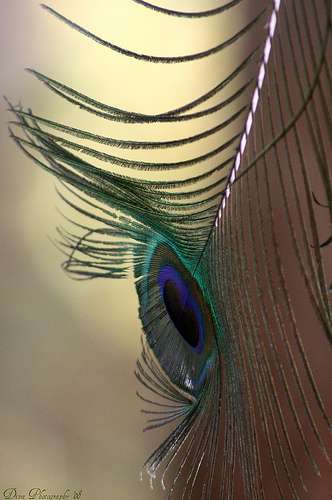FWP:
SETS == EXCLAMATION; KIH; MIDPOINTS
On the ambiguities of kyūñkar , see {125,1}.
Bekhud Mohani is right that the vigorous exclamatory energy of batāʾo us mizhah ko dekh kar is the heart of the verse. Colloquially, the verb is omitted from the first line; we readily supply the subjunctive ho , but then the 'whether' or 'how' is also missing, and that too we have to supply-- presumably through an extended interpretation of kih -- to fulfill the intention of the line. These multiple omissions are what Nazm and Bekhud Mohani refer to as 'entanglement' [taʿqīd]; it's a sort of allusive sketchiness of grammar that requires (re)assembly work on the part of the reader-- a preliminary task, even before the usual interpretive work we must do once the grammar has been established.
The grammar of the first line also makes possible the attribution of the 'midpoint' absolutive dekh kar to either the speaker ('Tell me-- once I've seen... ') or the addressee ('Now that you've seen them, tell me... ').
A lancet [nashtar] was used in early medical practice to make an incision in a vein and let out blood, to relieve feverishness or delirium; thus bleeding would be an appropriate treatment for a hysterical lover crazed by the nearness of the beloved. For more on lancets, see {166,2}. The variant form nesh can also mean 'sting', as in a snakebite, but a lancet (which aims for a vein) offers more connection than does a sting (which has no special aim), so the 'sting' meaning seems secondary.
Bleeding of course involved minor veins and not the jugular vein (literally, 'vein of life'); but then, the lover is a special case, and for him this ultimate treatment might be the only genuinely effective one. It would most probably prove fatal; but then, that might be part of what makes it so fascinating and desirable for him to speculate about.
The grammar of the second line, like that of the first, offers some enjoyable ambiguities. Here are some possible readings:
='If this lancet would be buried in my jugular vein, what would that be like?!' Because I'm thinking this so thrillingly all the time, I naturally can't have any composure.
=If this lancet would be buried in somebody's jugular vein (as it is in mine) then how would it be possible for that person to maintain composure? You just take a look at it, and tell me!
=If this lancet would be inserted into my jugular vein to bleed me, then indeed after that drastic medical treatment I might be less delirious and have some composure; but how could this be arranged?
=Since this lancet penetrates deep in my eyes and veins and
heart, I can't have any peace or composure. If only it could be plunged fatally
into my jugular vein, and thus put me out of my misery, it would be a real
kindness! But how could this be arranged?

Nazm:
According to the Urdu taste, to [shorten the zhah syllable] of mizhah seems bad. Here the author has followed the Persian-speakers. In this verse is extreme convolutedness; in prose we'll say it like this: 'Having seen those eyelashes, tell me-- if such a lancet would be buried in an artery, then how would I have any composure?' (135)
== Nazm page 135